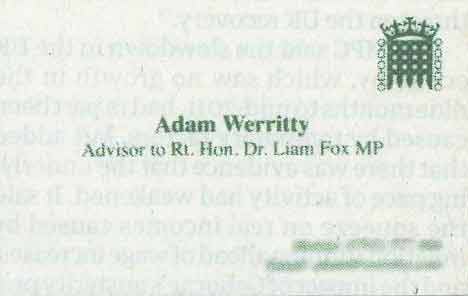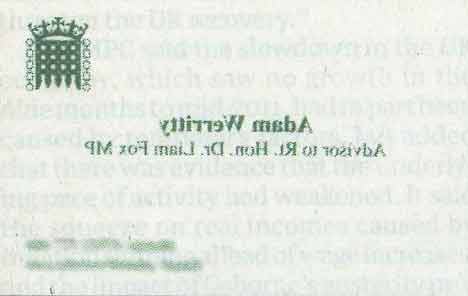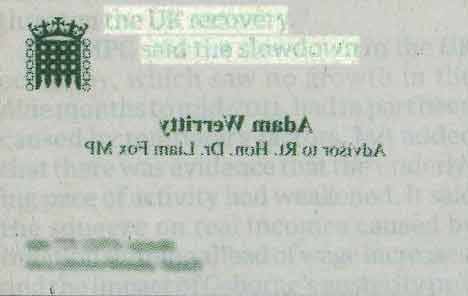With permission, Mr Speaker, I would like to make a statement.
Over the past two weeks, a torrent of revelations and allegations has engulfed some of this country’s most important institutions.
It has shaken people’s trust in the media and the legality of what they do, in the police and their ability to investigate media malpractice, and, yes, in politics and in politicians’ ability to get to grips with these issues.
People desperately want us to put a stop to the illegal practices, to ensure the independence and effectiveness of the police and to establish a more healthy relationship between politicians and media owners.
Above all, they want us to act on behalf of the victims: people who have suffered dreadfully – including through murder and terrorism – and who have had to re-live that agony all over again because of phone hacking.
The public want us to work together to sort this problem out, because until we do so it will not be possible to get back to the issues they care about even more, getting our economy moving, creating jobs, helping with the cost of living, protecting them from terrorism, restoring fairness to our welfare and immigration systems.
Let me set out the action that we have taken.
We now have a well-led police investigation which will examine criminal behaviour by the media and corruption in the police.
We’ve set up a wide-ranging and independent judicial inquiry under Lord Justice Leveson to establish what went wrong, why and what we need to do to ensure it never happens again.
I am the first prime minister to publish meetings with media editors, proprietors and senior executives to bring complete transparency to the relationship between government ministers and the media – stretching right back to the general election.
And the House of Commons, by speaking so clearly about its revulsion at the phone-hacking allegations, helped to cause the end of the News Corp bid for the rest of BSkyB.
Today, I would like to update the house on the action that we are taking.
First, on the make-up and remit of the public inquiry.
And second, on issues concerning the police service.
And third, I will answer – I am afraid Mr Speaker at some length – all of the key questions that have been raised about my role and that of my staff.
So first, the judicial inquiry and the panel of experts who will assist it.
Those experts will be:
The civil liberties campaigner and director of Liberty, Shami Chakrabarti;
The former chief constable of the West Midlands, Sir Paul Scott-Lee;
The former chairman of OfCOM, Lord David Currie;
The longserving former political editor of Channel 4 news, Elinor Goodman;
The former political editor of the Daily Telegraph, and fomer special correspondent of the press association, George Jones;
And the former chairman of the Financial Times, Sir David Bell.
These people have been chosen not only for their expertise in the media, broadcasting, regulation and policing, but for their complete independence from the interested parties.
Mr Speaker, I also said last week that the inquiry will proceed in two parts and I set out a draft terms of reference.
We have consulted with Lord Justice Leveson, with the opposition, the chairs of relevant select committees and the devolved administrations.
I also talked to the family of Milly Dowler and the Hacked Off campaign.
We have made some significant amendments to the remit of the inquiry.
With allegations that the problem of the relationship between the press and the police goes wider than just the Met, we have agreed that other relevant forces will now be within the scope of the inquiry.
We have agreed that the inquiry should consider not just the relationship between the press, police and politicians but their individual conduct too.
And we have also made clear that the inquiry should look at not just the press but other media organisations – including broadcasters and social media – if there is any evidence that they have been involved in criminal activities.
I am today placing in the library of the house the final terms of reference.
Lord Justice Leveson and the panel will get to work immediately.
He will aim to make a report on the first part of the inquiry within 12 months.
Mr Speaker, there should be no doubt:
This public inquiry is as robust as possible.
It is fully independent.
Lord Justice Leveson will be able to summon witnesses under oath.
Mr Speaker, let me now turn to the extraordinary events we have seen over the past few days at Britain’s largest police force – the Met.
On Sunday, Sir Paul Stephenson resigned as commissioner of the Metropolitan police.
I want to thank him for the work he has carried out in policing over many, many years in London and elsewhere.
On Monday, assistant commissioner John Yates also resigned and again I want to express my gratitude for the work he has done, especially in improving our response to terrorism.
Given the sudden departure of two such senior officers, the first concern must be to ensure the effective policing of our capital – and that confidence in that policing – is maintained.
I have asked the home secretary and mayor of London to ensure that the responsibilities of the Met will continue seamlessly.
The current deputy commissioner – Tim Godwin – who stood in for Paul Stephenson when he was ill, and did a good job, will shortly do so again.
The vital counter-terrorism job, carried out by John Yates, will be taken on by the highly experienced Cressida Dick.
The responsibilities of the deputy commissioner – which the house will remember include general oversight of the vital investigations both into hacking and into the police – Operations Weeting and Elveden will not be done by someone from inside the Met, but instead by Bernard Hogan-Howe who will join temporarily from Her Majesty’s Inspectorate of Constabulary.
We are also looking to speed up the process for selecting and appointing the next commissioner.
But Mr Speaker, we cannot hope that a change in personnel at the top of the Met is enough.
The simple fact is that this whole affair raises huge issues about the ethics and practices of our police.
Let me state plainly – the vast majority of our police officers are beyond reproach, and serve the public with distinction.
But police corruption must be rooted out.
Operation Elveden and Lord Justice Leveson’s inquiry are charged with doing just this.
But I believe we can, and must, do more.
Put simply there are two problems.
First, a perception that when problems arise it is still “the police investigating the police”.
And second a lack of transparency in terms of police contacts with the media
We are acting on both.
These were precisely the two points that my Rt Hon Friend the home secretary addressed in her statement to this house on Monday.
We believe this crisis calls for us to stand back and take another, broader look at the whole culture of policing in this country, including the way it is led.
At the moment, the police system is too closed.
There is only one point of entry into the force.
There are too few – and arguably too similar – candidates for the top jobs.
As everyone knows, Tom Winsor is looking into police careers, and I want to see radical proposals for how we can open up our police force and bring in fresh leadership.
The government is introducing elected police and crime commissioners, ensuring there is an individual holding their local force to account on behalf of local people.
And we need to see if we can extend that openness to the operational side too.
Why should all police officers have to start at the same level?
Why shouldn’t someone with a different skill-set be able to join the police force in a senior role?
Why shouldn’t someone, who has been a proven success overseas, be able to help turn around a force at home?
I think these are questions we must ask to achieve the greater transparency and stronger corporate governance that we need in Britain’s policing.
Finally let me turn to the specific questions I have been asked in recent days.
First, it has been suggested that my chief of staff was behaving wrongly when he didn’t take up then assistant commissioner Yates’s offer to be briefed on police investigations around phone hacking.
I have said repeatedly about the police investigation that they should purse the evidence wherever it leads and arrest exactly who they wish.
And that is exactly what they have done.
No 10 has now published the full email exchange between my chief of staff and John Yates and it shows my staff behaved entirely properly.
Ed Llewellyn’s reply to the police made clear that it would be not be appropriate to give me or my staff any privileged briefing.
The reply that he sent was cleared in advance by my permanent secretary, Jeremy Heywood.
Just imagine, Mr Speaker if they had done the opposite and asked for, or acquiesced in receiving privileged information – even if there was no intention to use it.
There would have been quite justified outrage.
To risk any perception that No 10 was seeking to influence a sensitive police investigation in any way would have been completely wrong.
Mr Yates and Sir Paul both backed this judgment in their evidence yesterday.
Indeed, as John Yates said: “The offer was properly and understandably rejected.”
The cabinet secretary and the chair of the home affairs select committee have both now backed that judgement too.
Next, there is the question as to whether the ministerial code was broken in relation to the BSkyB merger and meetings with News International executives.
The cabinet secretary has ruled very clearly that the code was not broken – not least because I had asked to be entirely excluded from the decision.
Next, I would like to set the record straight on another question that arose yesterday – whether the Conservative Party had also employed Neil Wallis.
The Conservative Party chairman has ensured that all the accounts have been gone through and has confirmed to me that neither Neil Wallis nor his company has ever been employed by or contracted by the Conservative Party – nor has the Conservative Party made payments to either of them.
It has been drawn to our attention that he may have provided Andy Coulson with some informal advice on a voluntary basis before the election.
To the best of my knowledge I didn’t know anything about this until Sunday night.
But as with revealing this information, we will be entirely transparent about this issue.
Finally Mr Speaker, there is the question whether everyone – the media, the police, politicians – is taking responsibility in an appropriate manner.
I want to address my own responsibilities very directly – and that brings me to my decision to employ Andy Coulson.
I have said very clearly that if it turns out Andy Coulson knew about the hacking at the News of the World he will not only have lied to me but he will have lied to the police, to a select committee, to the Press Complaints Commission and, of course, perjured himself in a court of law.
More to the point, if that comes to pass, he could also expect to face severe criminal charges.
I have an old fashioned view about “innocent until proven guilty”.
But if it turns out I have been lied to, that would be a moment for a profound apology.
And, in that event, I can tell you I will not fall short.
My responsibilities are for hiring him – and for the work he did in Downing Street.
On the work he did, I will repeat, perhaps not for the last time, that his work at Downing Street has not been the subject of any serious complaint.
And, of course, he left months ago.
On the decision to hire him, I believe I have answered every question about this.
It was my decision. I take responsibility.
People will, of course, make judgements about it.
Of course I regret and I am extremely sorry about the furore it has caused.
With 20:20 hindsight – and all that has followed – I would not have offered him the job and I expect that he wouldn’t have taken it.
But you don’t make decisions in hindsight; you make them in the present.
You live and you learn – and believe you me, I have learnt.
I look forward to answering any and all questions about these issues – and following the statement I will open the debate.
But the greatest responsibility I have is to clear up this mess – so let me finish by saying this.
There are accusations of criminal behaviour – by parts of the press and potentially by the police where the most rapid and decisive action is required.
There are the issues of excessive closeness to media groups and media owners where both Labour and Conservative have to make a fresh start.
There is the history of missed warnings – select committee reports, information commissioner reports – missed by the last government but yes also missed by the official opposition too.
What the public expects is not petty point scoring, but what they want, what they deserve, is concerted action to rise to the level of events and pledge to work together to sort this issue once and for all.
And it is in that spirit that I commend this statement to the house.



